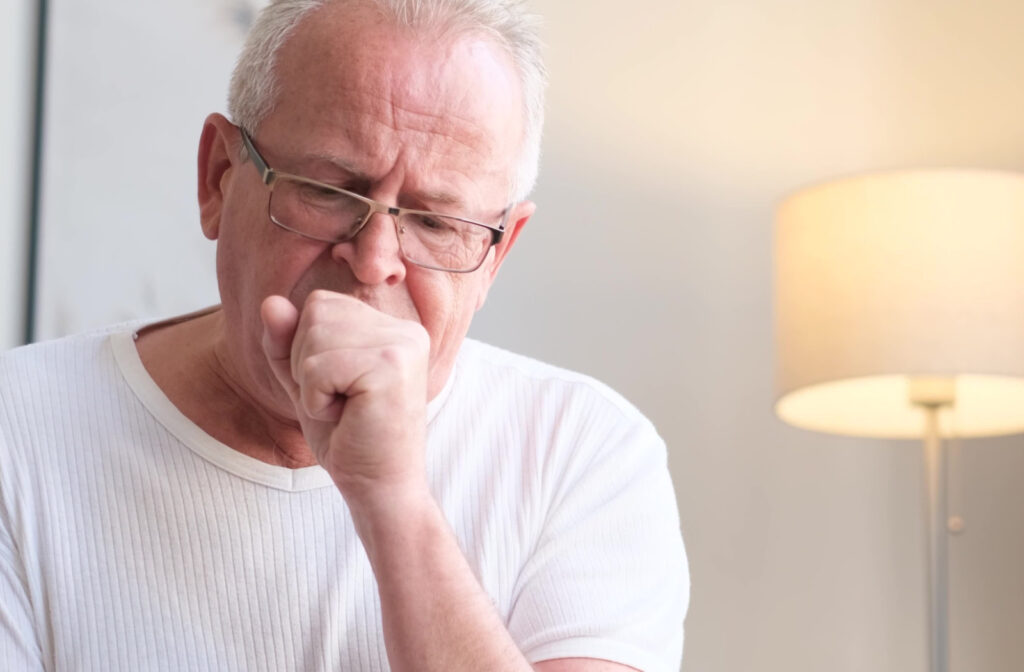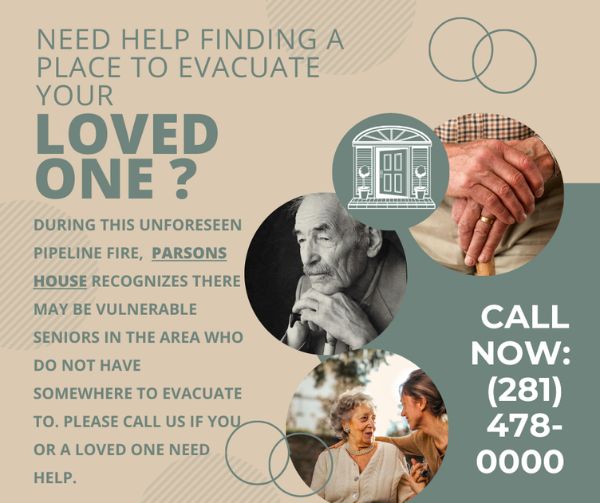As seniors age, their immune systems begin to become less efficient at fighting off infections. Whether they live in assisted living, at home, or with family, this can be a concern for some seniors as their bodies become more susceptible to illnesses. It’s essential to know how to avoid some of the more serious infections—like pneumonia.
Pneumonia, a lung infection, can be contracted in many ways, making it difficult to completely remove the risk of contracting this condition. However, you can significantly lower the chance of you or someone you love contracting pneumonia through a combination of vaccinations, proper hygiene, a healthy lifestyle, and avoiding contact with contaminated individuals.
What Is Pneumonia?
Pneumonia is a lung infection that can affect one or both lungs simultaneously. It occurs when the air sacs in the lungs, known as alveoli, become inflamed, leading to them filling with fluids. This makes it difficult to breathe and can lead to significant complications—especially in seniors, who may have compromised or weakened immune systems or lungs.
This infection can be caused by several factors:
- Bacteria
- Viruses
- Fungi
- Chemical exposure
Pneumonia can vary in terms of how severe the infection occurs and can be contracted in several ways. Usually, this condition is acquired from your natural environment in a form called community-acquired pneumonia, but can also be contracted during or after an extended hospital stay in a form called hospital-acquired pneumonia.
Community-Acquired Pneumonia
Community-acquired pneumonia is typically contracted due to exposure to viruses, fungi, or bacteria in the air. When exposed to a person with pneumonia, droplets or residue containing the infectious matter can be inhaled by others, leading to the contraction of this infection. It can also be acquired by touching contaminated surfaces or objects.
Hospital-Acquired Pneumonia
Hospital-acquired pneumonia is a form of pneumonia typically contracted during or after a hospital stay. This is a specific type of pneumonia that may be caused by drug-resistant bacteria typically found in healthcare settings, and can often be more challenging to treat due to the severity of the infection it causes.
What Are the Symptoms of Pneumonia?
It’s essential to recognize the symptoms of pneumonia, as early detection can allow for quicker medical intervention. However, it’s important to note that symptoms vary in severity depending on the cause and type of pneumonia contracted.
The common signs of mild pneumonia typically include:
- A persistent cough
- Low fever
- Fatigue or weakness
- Shortness of breath
- Rapid breathing
- Chest discomfort or irritation, especially when coughing or breathing deeply
When the infection is more severe, it typically involves:
- Persistent coughing and phlegm discharge
- A high fever
- Bluish lips or nails caused by a lack of sufficient oxygen
- Confusion
- Rapid heart rate
- Sweating or chills
- Shakiness
If you or a loved one are experiencing the symptoms of pneumonia, your first step should be to visit your healthcare provider immediately.
What Causes Pneumonia?
Pneumonia is caused by a wide variety of microorganisms, including bacteria, fungi, and viruses. It can be caused by exposure to a contaminated individual or surface and, in some situations, can be caused by a previous infection or virus.
This condition is typically transmitted through respiratory droplets in the air after a person sneezes or coughs. However, it can also be caused by touching a contaminated object and then touching your face. Once the residual droplets are near your face, the harmful bacteria can be inhaled into your lungs.
There are some factors that can increase your risk of developing pneumonia, including:
- Age
- Underlying health conditions
- Previous exposure to viruses or illnesses
- Recent hospitalization (where you may be exposed to forms of drug-resistant bacteria)
- Recent invasive medical procedures
Fortunately, many of these factors can be controlled or addressed, allowing you to reduce the risk of contracting this condition.
How Can You Prevent Pneumonia?
Taking proactive steps to prevent pneumonia—especially for seniors—is essential.
Some strategies you can implement include:
- Ensure that you and your loved ones receive the vaccinations recommended by your healthcare provider, including the pneumococcal vaccine and the influenza vaccine. These can significantly lower the risk of developing pneumonia.
- Wash your hands frequently with soap and water, or use hand sanitizer often.
- Practice proper respiratory hygiene. This includes covering your mouth and nose with a tissue when coughing or sneezing or using the inside of your elbow to avoid spreading potential contaminants or bacteria.
- Avoid contact with exposed or infected individuals with respiratory infections. Try to keep your distance from sick individuals around you.
- Maintain a healthy lifestyle, including following a healthy diet and regularly exercising. This can strengthen your immune system and help your body fight off foreign contaminants.
- Avoid exposure to contaminants and pollutants, including tobacco smoke or harmful chemicals in the air.
Taking Care of Your Loved Ones
Protecting the seniors in your life from pneumonia requires a special level of care and attention to prioritize their health. However, by being vigilant and taking preventative measures, you can help take care of your loved ones and reduce their risk of contracting infectious diseases like pneumonia. At Parsons House La Porte, we know how important your loved ones’ health is. The teams working in our community are trained to address many different medical concerns, and we focus on prioritizing our residents’ health and well-being. If you’re in need of an assisted living community that believes in treating each and every person like they’re part of our family, book a tour with us today.



